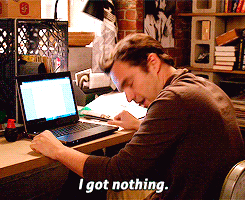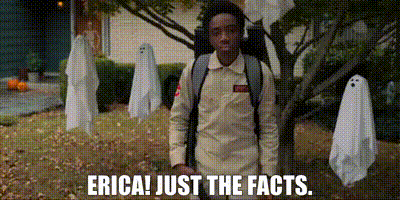Hi, I’m Kate. Ask an Author is an advice column for authors at all stages of writing, publishing, and hand-wringing. Have a question? Fill out this form and I’ll answer it in a future response! Looking to work one-on-one? Find me at Broad Editorial for additional support.
Hi Friends,
I’m currently in Vermont, wearing two pairs of socks as I watch the snow fall—not in a postcard-perfect way but where the wind is whipping it off the roof and it’s predicted to turn into the worst substance on earth: freezing rain. Since I’m on a bit of a vacation (although “vacation” + freezing rain has me rethinking my life choices) and since so many new folks have joined over the last year (hiiii, I’m so glad you’re here!!) I decided to dig into the archives and see what I was writing about last January.
This post on how to write a synopsis remains one of my most popular. I’m re-sharing it for those of you who are new, those of you who maybe weren’t ready to write a synopsis this time last year but are eyeing one now, and those of you who have a synopsis but might want to give it another look. Even if you don’t need a synopsis, consider writing one to see how your manuscript is working in the big picture. It can be an incredibly useful exercise to find the weak points of your story and to hone in on the heart of your story.
I’ve added some edits, because I’m always rethinking and learning new things, and I’ve linked to additional posts I’ve written since then on other elements of querying.
That high-pitched wailing you hear? That’s the collective cries of authors everywhere trying to figure out how to write a synopsis. When I was announced that I was starting this Substack, the very first question I got was: “Can you do one on synopses?”
So here it is. THE GREAT SYNOPSIS SUBSTACK. Or, how to summarize your entire novel without losing your mind.
What is a synopsis?
A synopsis is a short document that summarizes your ENTIRE book. Including the ending. Including spoilers. Unlike a blurb that hooks the reader and makes them want to pick up your book and read on, a synopsis shows your reader all the key points in your book so they don't have to read it.
Different agents may ask for different lengths. It's common to have a one page synopsis, a two page synopsis, sometimes a three page synopsis (I've never seen anyone ask for longer than that). This is generally in the 200-300 word range, or the 300-500 word range.
[Edited to add: I’ve been recommending people write a one-to-two page synopsis and leaving it at that, because it’s more versatile.]
I already wrote a whole @#$%^ book. Why do I need to write more?
Synopses started making more sense to me—and less like yet another aggravating publishing hoop to jump through—when I understood who reads them and why.
Agents:
Agents may ask for a synopsis because they want to skim a summary before they commit to reading an entire manuscript. It's entirely possible to have a sh*tty synopsis and a fantastic novel. But if there are major plot problems in a synopsis, it can indicate that the novel has problems as well, and an agent may want to know that before they decide whether to spend hours reading.
There are also genre conventions an agent will expect your book to follow, if those are the genres you’re writing in. If you’re querying a romance and the characters all die in the end, or a mystery that doesn’t get solved, or a sci-fi thriller that—surprise!—turns out to have all been a dream…an agent probably wants to know if a book is a non-starter before they’re 300 pages in.
If this sounds negative, remember that an agent may get really excited to find out where your story goes. It’s an opportunity to show off, in a short amount of space, how great your work is.
[Edited to add: When I started writing a new manuscript this past year, I first sent my agent a synopsis so we could discuss the story I wanted to write and she could give me her input before I got too in the weeds. This was SO SO HELPFUL, I CANNOT RECOMMEND IT ENOUGH. Things changed once I actually wrote the manuscript, but writing that guide for myself—and getting feedback on it—was invaluable!]
Editors:
When your agent sends your manuscript to an editor, the editor will often get what's called second reads, when they pass your work around to colleagues in their office and try to drum up support. Again, everyone is inundated with manuscripts, so they may want to get the gist of your book before they commit to reading the whole thing.
Or, I have to assume, they get excited by the synopsis and give the green light to go ahead even if they don’t have time to read the full manuscript themselves.
I had this happen when I sold How to Fall, an early romance novel I wrote under my pen name. I was glad I’d taken the time to write and revise my synopsis, so I wasn’t scrambling when suddenly an editor asked my agent to send it to her!
[Edited to add: This didn’t happen when I sold my forthcoming literary novel, GREENWICH, to St. Martins this fall, but since it did happen with one of my romance novels, I have to assume it’s still a thing….]
The rest of your publishing team:
Even after a publisher takes on your novel, more people will continue to work on it. Think of your synopsis as a little bundle of your novel that someone in sales, or marketing, or the art department might read to get a sense of what the book is about. There are other internal forms you may wind up filling out to convey this information — different publishers do it differently. It’s helpful to already have the synopsis handy if needed.
What should a synopsis include?
Setting.
Main characters.
Inciting incident.
What happens next?
Midpoint.
Is there another turning point?
Climax.
Resolution.
Maybe your narrative doesn't follow all of those components exactly. Regardless, you can see how a synopsis lays out the whole arc of a story. You don't need all your secondary characters or subplots, just the most important pieces.
Tips and Strategies:
Write your synopsis in third person present tense, regardless of how the novel is written.
Stick to one point of view, even if your synopsis contains multiple viewpoints. This isn’t a hard and fast rule, but it can make your life easier. Phrases like “Little does she know…” or “Meanwhile…” can allow you to fold in information without going all in on a second character or subplot.
Start by brainstorming everything that comes to mind as a key moment in the narrative. Then think about what’s truly essential and pare it down from there.
Write down the inciting incident (what changes your protagonist’s “normal world” and gets the narrative rolling?). Then write the climax. Then think about how your character gets from Point A to Point B, in the fewest steps possible.
I write out a dry, dull account of what happens (yawn). Then, I look at why it happens. Regardless of your genre, a synopsis conveys an emotional journey—why does your character do what they do? What are their motivations? Why will the reader care? Once I’ve gotten the basic plot points down, I rewrite my synopsis with an eye toward emotion, not just “this happens then this happens then this happens the end.”
Imagine you’re telling someone what your book is about, including the ending. What do you include? What do you leave out?
Have someone read your synopsis who’s read your novel.
Have someone read your synopsis who hasn’t read your novel.
Give yourself plenty of time to write and revise. This isn’t something to rush or bang out in just a few hours! You may need to come back to it, rewrite, and edit as needed. This is TOTALLY NORMAL and not a sign that you don’t know what you’re doing or your book is crap and you need to fling the whole thing out the window, take a hammer to your laptop, and move to Fiji.
Of course you want your synopsis to be well written — it’s still a reflection of your writing. But it doesn’t have to be artistic, especially if the artistry takes up valuable real estate or detracts from the work the document has to do. It’s more important to get the job done.
Your book is not too complex, too deep, too original, or too brilliant to summarize. Sorry! If you’re very sure you absolutely cannot write a synopsis that conveys what your story is about, you may not be interested in doing the kind of promo and marketing traditional publishing (with an agent and publisher) will want to pursue. That’s okay — self publishing is a great option. But you’ll still want to figure out how to describe your book to capture a reader’s attention.
Edited to Add: More Ask An Author Resources:
The best way to get better at writing synopses is to practice doing them. Practice for the book you’re working on now. Practice for a book you’re reading, or a movie you’ve watched. Give yourself plenty of time and plenty of drafts. And let me know if you have follow-up questions about synopses, or anything else.
You got this.
Happy writing!
Kate








